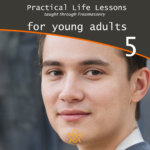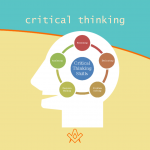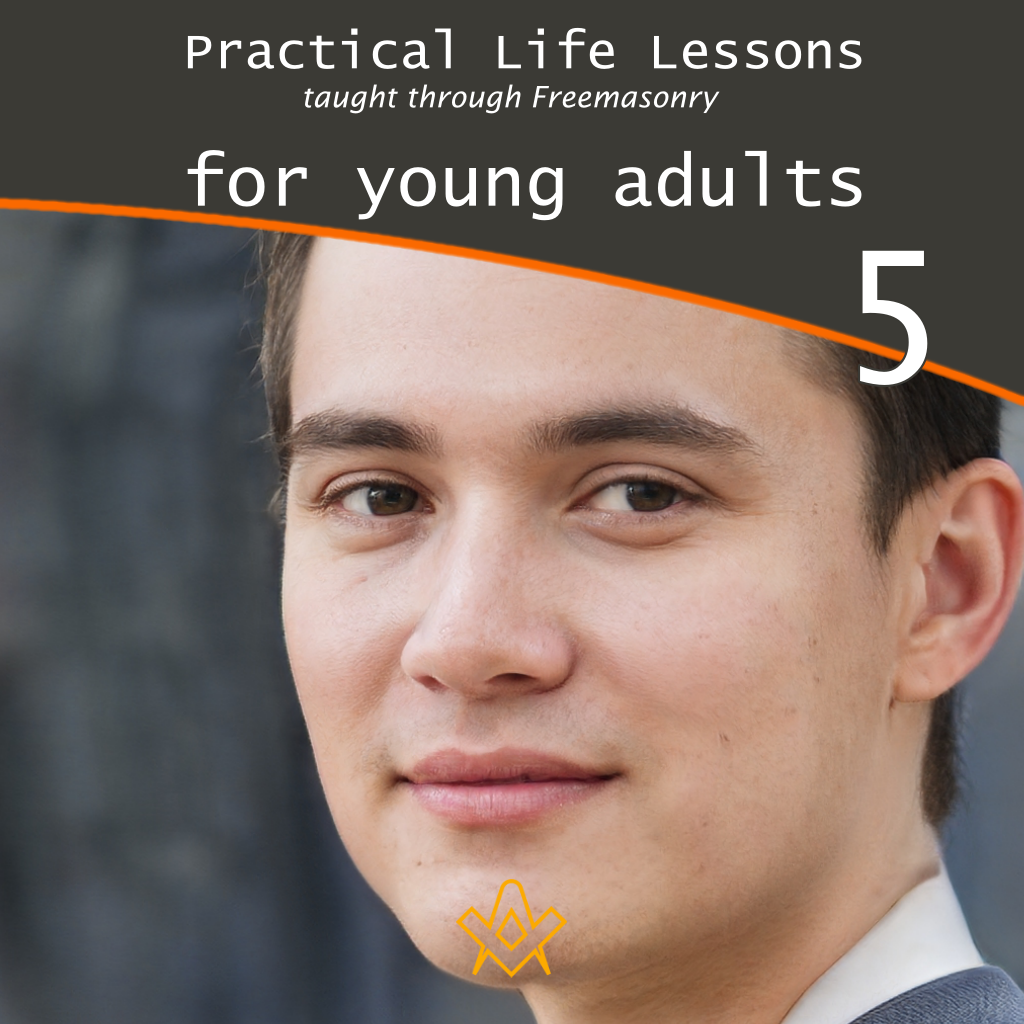A series of articles, produced by the square magazine, offering a guide to practical life lessons, taught through Freemasonry for young professionals, setting out in life after completing full time education.
Lesson 5 How to handle difficult emotions like anger, sadness, and fear
Why it is important to handle difficult emotions like anger, sadness, and fear
1. Handling difficult emotions can prevent negative consequences in relationships and interactions with others. For example, uncontrolled anger can lead to conflicts and arguments, while unacknowledged sadness can lead to isolation and withdrawal.
2. Properly managing difficult emotions can improve overall mental health and well-being. Ignoring or suppressing emotions can lead to emotional distress and can exacerbate mental health issues such as depression and anxiety.
3. Handling difficult emotions allows for better decision-making and problem-solving abilities. Difficult emotions can cloud judgment and hinder our ability to think logically and rationally. By acknowledging and processing these emotions, we can better assess a situation and make more informed choices.
How to handle difficult emotions like anger, sadness, and fear
1. Acknowledge and validate the emotions: It is important to recognize and acknowledge the difficult emotions you are feeling, rather than trying to suppress or ignore them. This can be done by simply acknowledging the emotions out loud to yourself or to someone else. Validating the emotions means recognizing that the emotions are valid and understandable given the situation. For example, if you are feeling angry, you can say to yourself, “I am feeling angry right now and it is understandable given what happened.”
2. Identify the underlying causes and triggers of the emotions: Once you have acknowledged and validated the emotions, it is important to try to understand the underlying causes and triggers of the emotions. This can help you to better manage the emotions and prevent them from overwhelming you. For example, if you are feeling angry, you may want to identify the specific event or situation that triggered the anger, such as a disagreement with someone or a frustrating situation.
3. Practice self-care and self-compassion: Taking care of yourself and being kind and compassionate towards yourself can help to reduce the intensity of difficult emotions. This can include activities such as getting enough sleep, eating well, exercising, and engaging in activities that you enjoy. It can also include practicing self-compassion, such as reminding yourself that you are not alone in experiencing difficult emotions and that everyone has their own struggles.
4. Use coping strategies to manage the emotions: There are many different coping strategies that can be used to manage difficult emotions, such as deep breathing, relaxation techniques, and positive self-talk. It is important to find the coping strategies that work best for you and to practice them regularly. For example, if you are feeling angry, you may want to try deep breathing or counting to 10 before responding to a situation.
5. Seek support from others: It can be helpful to seek support from others when dealing with difficult emotions. This can include talking to a trusted friend or family member, or seeking support from a mental health professional. Having someone to talk to and to help you process your emotions can make a big difference in how you feel and how you handle the emotions.
Top Tips
1. Recognize and acknowledge the difficult emotion. It is important to understand and identify what you are feeling in order to effectively manage it.
2. Take a step back and breathe. Take a moment to pause and take deep breaths to calm yourself before reacting to the emotion.
3. Practice mindfulness. Pay attention to the present moment and focus on your breath and body to ground yourself and manage the emotion.
4. Engage in self-care. Take care of your physical and emotional well-being by engaging in activities that bring you comfort and relaxation, such as exercise, meditation, or spending time in nature.
5. Express your feelings in a healthy way. It is important to find healthy outlets for your emotions, such as talking to a trusted friend or family member, writing in a journal, or engaging in art or music.
6. Seek professional help if needed. If you are unable to manage your emotions on your own, it may be helpful to seek the guidance of a therapist or counsellor.
7. Use positive self-talk. Practice positive self-talk and affirmations to challenge negative thoughts and beliefs that may be contributing to the difficult emotion.
8. Identify and change unhealthy thought patterns. Examine the thoughts and beliefs that may be driving the difficult emotion and work on changing them to more healthy and positive ones.
9. Practice gratitude and positivity. Focus on the good things in your life and practice gratitude to shift your mindset and manage difficult emotions.
10. Remember that emotions are temporary. Difficult emotions are a natural part of life, but they are not permanent. Remind yourself that they will pass and focus on taking care of yourself in the present moment.
If you found this article of interest, please share it with a young person in your family or community.
Full Series

Practical Life Lessons taught through Freemasonry
Learning and Development
A series of 10 learning and development articles, offering a guide to practical life lessons taught through Freemasonry for young adults setting out in life after full time education.
Overall, the lessons taught by Freemasonry are designed to help young adults develop the character, skills, and knowledge needed to succeed in life. By following the principles of brotherhood, charity, and self-improvement, young open minded individuals can build a strong foundation for a fulfilling and meaningful life.
The topics covered in the series are:
Lesson 1. How to communicate effectively and assertively.
Lesson 2. How to manage your finances and budget your money.
Lesson 3. How to take care of your physical and mental health.
Lesson 4. How to build and maintain healthy relationships.
Lesson 5. How to handle difficult emotions like anger, sadness, and fear.
Lesson 6. How to set and achieve goals for your personal and professional life.
Lesson 7. How to be open-minded and embrace diversity and inclusion.
Lesson 8. How to be a responsible and respectful member of your community.
Lesson 9. How to be a good partner and parent, if and when you decide to have a family.
Lesson 10. How to be adaptable and resilient in the face of challenges and change.
more ...
 Practical Life Lessons taught through Freemasonry - P1 A series of articles offering a guide to practical life lessons taught through Freemasonry for young adults setting out in life after full time education - Lesson 1; How to communicate effectively and assertively ? |
 Practical Life Lessons Taught Through Freemasonry - P2 A series of articles offering a guide to practical life lessons taught through Freemasonry for young adults setting out in life after full time education - Lesson 2: How to manage your finances and budget your money? |
 Practical Life Lessons Taught Through Freemasonry - P3 A series of articles offering a guide to practical life lessons taught through Freemasonry for young adults setting out in life after full time education - Lesson 3: How to take care of your physical and mental health |
 Practical Life Lessons taught through Freemasonry - P4 A series of articles offering a guide to practical life lessons taught through Freemasonry for young adults setting out in life after full time education - Lesson 4: How to build and maintain healthy relationships |
 Practical Life Lessons taught through Freemasonry - P5 A series of articles offering a guide to practical life lessons taught through Freemasonry for young adults setting out in life after full time education - Lesson 5: How to handle difficult emotions like anger, sadness, and fear |
 Practical Life Lessons taught through Freemasonry - P6 A series of articles offering a guide to practical life lessons taught through Freemasonry for young adults setting out in life after full time education - Lesson 6: How to set and achieve goals for your personal and professional life |
 Practical Life Lessons taught through Freemasonry - P7 A series of articles offering a guide to practical life lessons taught through Freemasonry for young adults setting out in life after full time education - Lesson 7: How to be open-minded and embrace diversity and inclusion for your personal and professional life |
 Practical Life Lessons taught through Freemasonry - P8 A series of articles offering a guide to practical life lessons taught through Freemasonry for young adults setting out in life after full time education - Lesson 8: How to emerge as a responsible and respectful member of your community inyour personal and professional life |
 Practical Life Lessons taught through Freemasonry - P9 A series of articles offering a guide to practical life lessons taught through Freemasonry for young adults setting out in life after full time education - Lesson 9: How to be a good partner and parent, if and when you decide to have a family. |
 Practical Life Lessons taught through Freemasonry - P10 A series of articles offering a guide to practical life lessons taught through Freemasonry for young adults setting out in life after full time education - Lesson 10. How to be adaptable and resilient in the face of challenges and change. |
masonic knowledge
to be a better citizen of the world
share the square with two brothers

click image to open email app on mobile device
Recent Articles: skills
 7 Soft Skills Taught In Freemasonry Discover how Freemasonry nurtures seven irreplaceable soft skills—collaboration; Communication, Teamwork, Empathy, Flexibility, Conflict Resolution, Active Listening, and Trustworthiness. Explore how these essential human attributes, grounded in emotional intelligence and ethical judgment, remain beyond the reach of AI. |
 Freemasonry and Reskilling in the age of AI The article explores the challenges and strategies organizations face in reskilling their workforce in the era of automation and artificial intelligence. It highlights the need for companies to view reskilling as a strategic imperative and involve leaders and managers in the process. The article also emphasizes the importance of change management, designing programs from the employee's perspective, and partnering with external entities. |
 Ten Central Commandments or Principles of Freemasonry Embrace the wisdom of Freemasonry's teachings in your personal journey towards self-improvement and stronger leadership. By upholding virtues of integrity, compassion, and respect, and uniting these with a commitment to continuous learning and social responsibility, inspire change. Transform yourself and the world around you, fostering a legacy of positivity and enlightenment. |
 Freemasonry: A Guide to Fatherhood In the sacred halls of Freemasonry, fathers discover a hidden power to transform their parenting journey. With its timeless values, supportive community, and life-enriching teachings, Freemasonry empowers fathers to provide a moral compass, foster self-improvement, build stronger connections, and embrace the confidence and wisdom needed to navigate the complex realm of fatherhood. |
 Courage as a core value in Freemasonry Freemasonry, a revered fraternity, prioritizes virtues like honesty and charity. However, courage is foundational. From Plato to Maya Angelou, courage is vital for other virtues. Freemasonry's teachings, referencing events like Gettysburg, emphasize diverse courage forms. In today's divided world, Masons promote and exemplify courage, understanding its importance in facing challenges. |
 How Freemasonry Cultivates Ideal Entrepreneurial Traits Freemasonry's cryptic rituals hold timeless lessons for building entrepreneurial greatness. Through tests of passion, vision and skill, Masonic teachings forge ideal traits like grit, creativity and alliance-making needed to seize opportunity and elevate enterprises. The right commitment unlocks code for entrepreneurial success. |
 What you see praiseworthy in others "What you see praiseworthy in others, carefully imitate, and what in them may appear defective, you will in yourself amend". This passage of Masonic ritual (Taylors Working, Address to the w |
 How to Learn Ritual with a Learning Disorder So what do you do when faced with that little blue book? Most Masons when first looking at the ritual book can understandably be fazed – the tiny print, the missing words, the questions and answers! Learning ritual can be a challenging task for anyone, especially individuals with learning disorders, but it is not impossible. Here are some tips to help make the process easier. |
 A "mind palace", also known as a "memory palace", is a technique for memorizing and recalling information. How would your life change if you could remember anything and everything? Discover the 'Mind Palace' and all will be revealed. |
 What is leadership and who does freemasonry help develop those skills needed to be a better leader |
 A story of the 'Ruffians' – those individuals whose paths cross ours, who feel entitled to seize and consume the property of others that they have not earned. A lesson to build character to be a better citizen of the world. |
 Now we are back in the Lodge room once again, maybe it is time to review how we learn and deliver ritual and look at different ways of improving that process. |
 Making an advancement in Masonic Knowledge can become far easier when you 'learn how to learn'. |
 Learn how to practise Masonic meditation in a busy world with all its care and employments |
 Struggling to learn your ritual? Become a 5-Minute Ritualist with the aid of a book of the same name. |
 Day in the life of a Freemason As we start a new year, maybe start it with a new habit? |
 Ten Basic Rules For Better Living Ten Basic Rules For Better Living by Manly P Hall |
 How can we use masonic leadership skills to avoid confrontational situations? |
 How the Trivium is applied to Critical Thinking - {who, what, where, when} - {how} - {why} |
 The Seven Liberal Arts - why 'seven', why 'liberal', why 'arts'? |
 How to improve your public speaking skill with 6 techniques |
 Do you need to speak in public, or present Masonic ritual without notes ? |
 What are logical Fallacies and how to spot them |
 Share one easy tip to learn masonic ritual; Some good tips from Facebook followers |
 How can we use the 7 secrets of the greatest speakers in history |
 What is a critical thinker and what are their characteristics? |
 Share one personal skill Freemasonry helped you to improve? How can we make practical use of the lessons taught in Masonic writings? |
 An introduction to the art of public speaking - speak with confidence |
 Seven Liberal Arts and Sciences What do you know about Seven Liberal Arts and Sciences |
 Three Words That Will Change Your Life This article discuss a common situation found in many lodges - a difficulty in holding a conversation with a stranger. |
 Al - Khwarizmi live c750 - c820 is credited as being the father of Algebra, being asked what is Man, give his answer in an algebraic expression |









